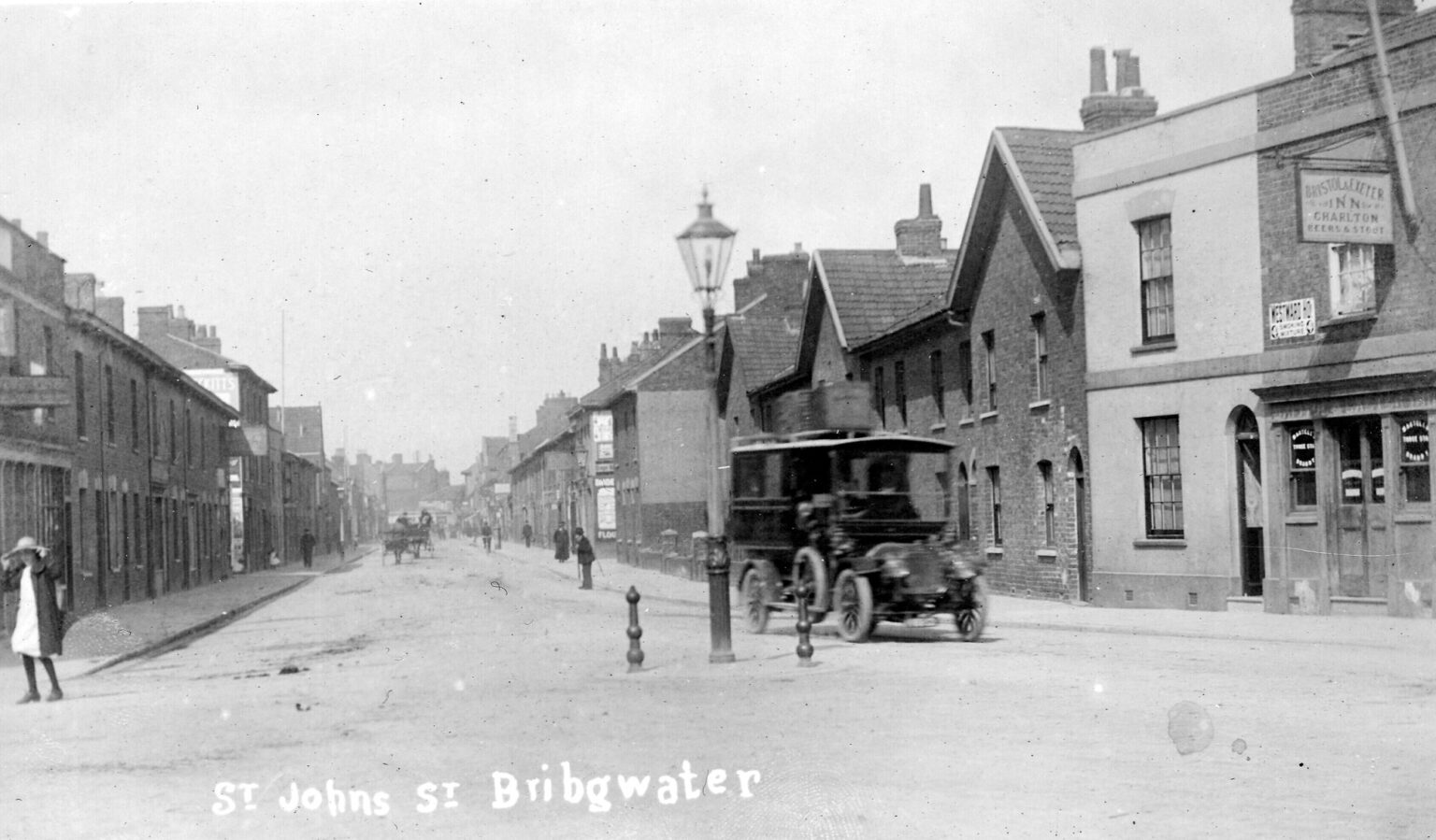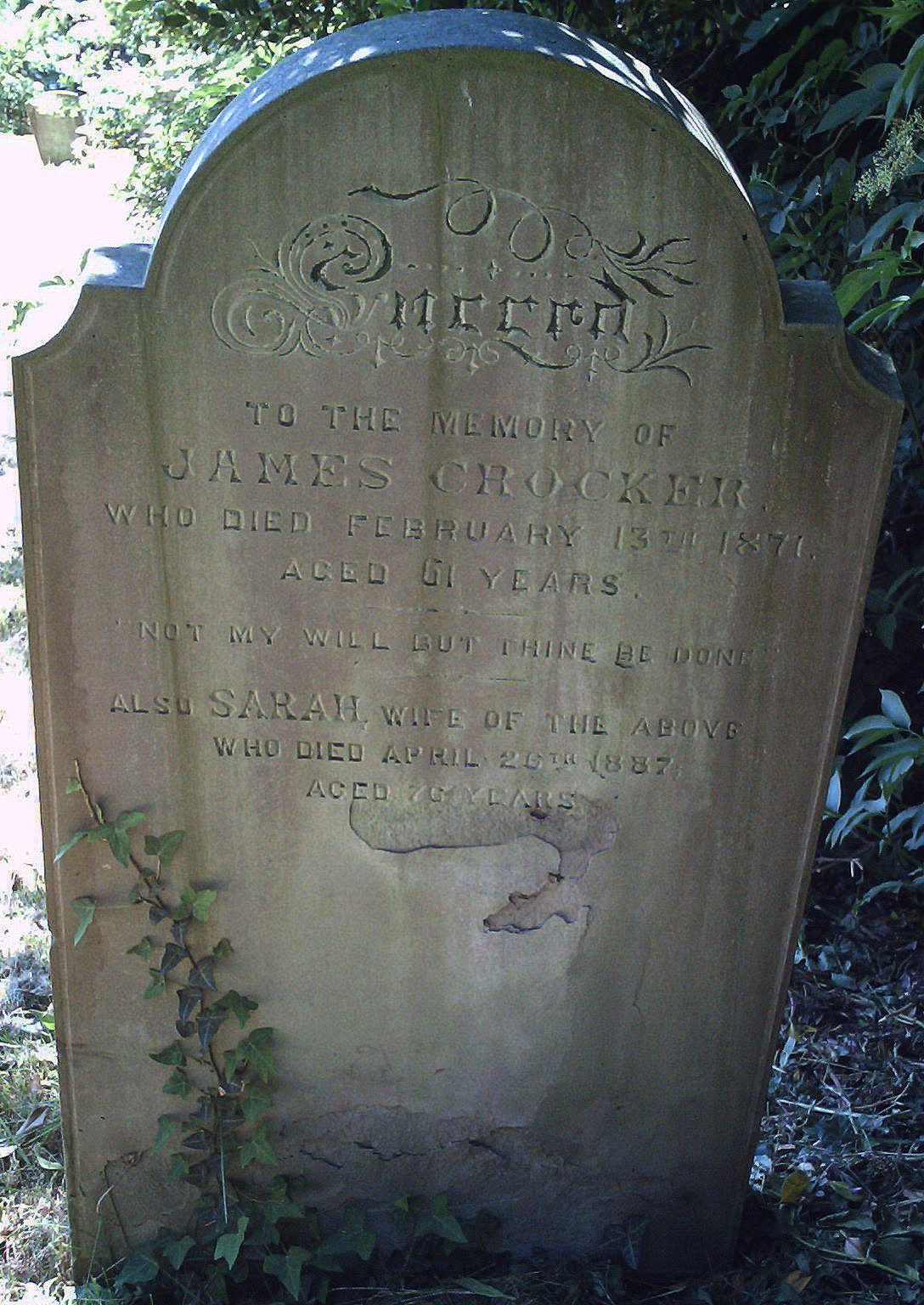James Crocker, 1809 – 1871, and Sarah Crocker, nee Rugg 1813 – 1887
Clare Spicer, Hilary Southall and Jill Trethewey 21/06/2022
James Crocker (sometimes spelt Croker) was born in the village of Bawdrip, about 4 miles north east of Bridgwater. James was the youngest son of John and Hannah Crocker, and was one of eight siblings. James was baptised on the 28th of May 1809 in the parish church.
James’s father John was a thatcher, and John’s father, Jacob Crocker was an agricultural worker who built two cottages in the 1770s in Bawdrip village. These two cottages are now known as Sunnyview Cottage and Rose Cottage, and were lived in by members of the Crocker family up to the 1890s. Sunnyview Cottage was divided into two dwellings, one of which was occupied by John Crocker, and this would have been where James was born.
James Crocker came from a large family and although some of James’s brothers became thatchers like their father, there may not have been enough thatching work for all John’s sons. When he was a young man, James left Bawdrip and went to find work in the nearby town of Bridgwater.
James married Sarah Rugg in St Mary’s Church in Bridgwater on the 22nd of April 1833. James had to make his mark on the parish register, but Sarah was able to sign her name. Sarah had been born in Bath, and was the daughter of William Rugg, and his wife Sarah, nee Parker.
James and Sarah soon had two sons, George born in 1836 and John in 1839. By 1839, James had found work as a post boy. Referring to a grown man as a post boy may sound odd now, but then it was a term for a person who travelled with the post bags from place to place, either travelling on board the coach or cart, or riding beside it, like a postilion. There was a central post office in Bridgwater in Fore Street, where the mail was sorted and would then be delivered to outlying villages. At that time, Thomas Ludlow was the Postmaster for Bridgwater, so he would have been employing James to carry or escort the mail bags.
The 1841 census showed James working as a post boy and living in Back Lane with his wife and children, and widowed mother in law Sarah Rugg, who was working as a servant. A third son, Frederick, was born in 1845. In 1851, James was still working as a post boy, but by 1861 he had changed occupation and was now the landlord of an inn. The name of the inn is not given, but was probably the Cow and Butcher Inn in Back Street (now Clare Street), as there was only one pub in that road. (Not to be confused with the Bull and Butcher on the High Street).
Working as a pub landlord would have been hard work for James and his family. They would have to manhandle the heavy beer and cider barrels, store them carefully in a cellar, and keep the drink in good condition. James would have to be prepared to deal quickly with any rowdy behaviour, and his wife Sarah would also have been involved in serving the drink. They probably both worked at washing the tankards and glasses and cleaning the premises, helped by their sons. They may also have served some simple food, which Sarah would have to cook.
They must have enjoyed the work, as by January 1871, James was the landlord of the Exeter Inn in St John Street (now the Bristol and Exeter Inn). However James died on the 13th of February 1871, and he was buried in Wembdon Road Cemetery, Dissenters Plan 2 plot 392. Although James and Sarah had got married and had their children baptised in an Anglican church, James had become a Dissenter by the time of his death.

James’s wife Sarah took over the running of the pub, as she was living there shortly after James’s death. The census of 1871 shows Sarah as the landlady of the Exeter Inn, living over the bar with her two unmarried sons. They probably helped her in the evenings and at weekends, but they both had day jobs. John, now aged 31, was a sail maker, and Frederick, aged 27, was a cabinet maker. Sarah’s eldest son George was married and living nearby in Bridgwater with his wife and young son.
By 1881 and at the age of 68, Sarah was able to enjoy her retirement. She was living at 11 Angel Crescent, together with her unmarried son John, who was still working as a sailmaker. Sarah was supplementing her income by taking in a lodger, John Angel, who was a jeweller from Trowbridge.
Sarah Crocker died in April 1887, and she was buried together with her husband James in Dissenters Plan 2, plot 392.

All three of James and Sarah’s children were buried in Wembdon Road Cemetery:-
John Crocker was buried on the 5th of May 1892, Dissenters Section A 88 (old classification).
Frederick Crocker was buried on the 9th of March 1898, Anglican Section K 33/678
George Crocker was buried on the 7th of March 1919, Dissenters Plan 7 65
References
Ancestry.co.uk – births, marriages and deaths and census records.
Friends of Wembdon Road Cemetery
